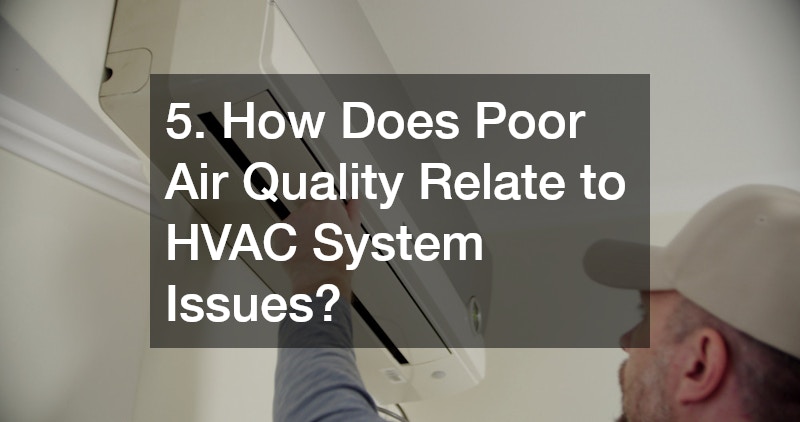Understanding when to call emergency HVAC services is essential for maintaining a comfortable and safe home environment. This article delves into common signs that indicate an immediate need for professional HVAC assistance.
1. What Are the Common Signs of HVAC System Failure?
1.1. Unusual Noises and Their Causes
Unusual noises emanating from your HVAC system can range from high-pitched squeals to low rumbles. These could indicate anything from a loose belt to a failing motor.
Ignoring these sounds may result in further damage and increased repair costs. It’s crucial to pay attention to any sound that seems out of the ordinary.
Calling a professional when you first notice these noises can prevent a minor issue from becoming a major problem. Proactive attention can extend the life of your HVAC system.
1.2. Inefficient Heating or Cooling
If you notice uneven temperatures throughout your house, it might be a sign of inefficient heating or cooling. This could result from blocked vents, a failing compressor, or a dirty filter.
Ignoring these signs can lead to discomfort and increased utility bills. Identifying the root cause early can help prevent a complete system shutdown.
Consulting with an HVAC professional can help diagnose and resolve the issue effectively. Regular maintenance checks can prevent these problems from occurring in the first place.
2. How Can Unexplained High Energy Bills Indicate an Issue?
2.1. Identifying Patterns in Energy Usage
A sudden spike in energy bills can often signal an underlying issue with your HVAC system. This is particularly true if your usage patterns have not significantly changed.
Examining your energy usage history can provide better insights into whether the problem is persistent and escalating. An experienced technician can carry out an energy audit to identify inefficiencies.
Early detection of energy inefficiency can save homeowners a significant amount of money over time. Moreover, it helps in maintaining an eco-friendly household.
2.2. Addressing Potential System Inefficiencies
Tackling inefficiencies can involve cleaning or replacing air filters, sealing duct leaks, or tuning the HVAC system. Each of these actions contributes to better efficiency and lower bills.
Experts suggest scheduling regular inspections to prevent minor issues from escalating into costly repairs. Efficiency can also be improved by upgrading to a more modern, energy-efficient unit.
Many energy providers offer incentives to households that improve their energy efficiency. Using these opportunities can make the necessary upgrades more financially feasible.
3. When Is a Complete System Shutdown Considered an Emergency?
3.1. Immediate Steps to Take
Should your HVAC system undergo a complete shutdown, immediate action is necessary to avoid further complications. Turning off the system at the circuit breaker is the first emergency step to take.
Next, contacting an HVAC professional should be your priority to diagnose and resolve the root cause. Professionals have the skills and tools necessary to tackle even the most complicated issues.
In the meantime, use alternative heating or cooling methods to maintain comfort and safety. Such action helps mitigate risks associated with extreme temperatures.
3.2. Evaluating the Urgency of Professional Repair
Not every breakdown requires emergency services, but urgent professional evaluation is crucial. Factors such as outdoor temperature and the household members’ health conditions impact the urgency.
Systems that fail in extreme weather conditions require prompt attention to avoid health risks. An immediate repair minimizes costs associated with prolonged downtime.
Regular checks and timely repairs keep the HVAC system in good working condition. This strategy minimizes the likelihood of unexpected shutdowns.
4. What Role Do Strange Smells Play in Indicating HVAC Problems?
4.1. Identifying Different Odors and Their Sources
Various smells can emanate from your HVAC system, each indicating a different issue. For instance, a musty smell may signify mold, while a burning odor could suggest an electrical problem.
Recognizing these odors and their sources can prevent serious safety hazards. Prompt attention to these smells is vital to prevent escalating problems.
Addressing these issues quickly helps in eliminating odorous conditions and discomfort. Furthermore, it enhances indoor air quality and safety.
4.2. Steps to Address Odors for Safety
Initiating a spot check to identify the source of the smell is the first step in ensuring safety. Contacting a professional for a detailed inspection will provide peace of mind and ensure safety.
Several corrective measures, such as cleaning vents or replacing components, may resolve the issue. These actions also work towards maintaining optimal system performance.
Consistently monitoring air quality helps identify odors early. Early detection mitigates risks associated with poor HVAC system performance.
5. How Does Poor Air Quality Relate to HVAC System Issues?
5.1. Recognizing Symptoms of Poor Indoor Air Quality
Poor indoor air quality can manifest as respiratory issues or general discomfort. Inadequate ventilation, along with HVAC issues, frequently contributes to declining air quality.
Enhancing airflow by cleaning or upgrading air filters can improve air quality. It’s essential to understand how HVAC system issues can directly affect health and wellness.
Being proactive in addressing symptoms assists in maintaining a healthy living environment. Taking action ensures that the air remains clean and breathable.
5.2. HVAC Maintenance Tips for Better Air Quality
Adopting consistent HVAC maintenance routines can significantly improve indoor air quality. Regularly replacing air filters and sealing ductwork minimizes pollutants in the air.
Professionals recommend scheduling an annual inspection to ensure all components perform as required. Such proactive measures help preempt potential system failures.
Providing maintenance reduces operating costs and prolongs the system’s lifespan. Ultimately, this creates a safe and comfortable environment.




